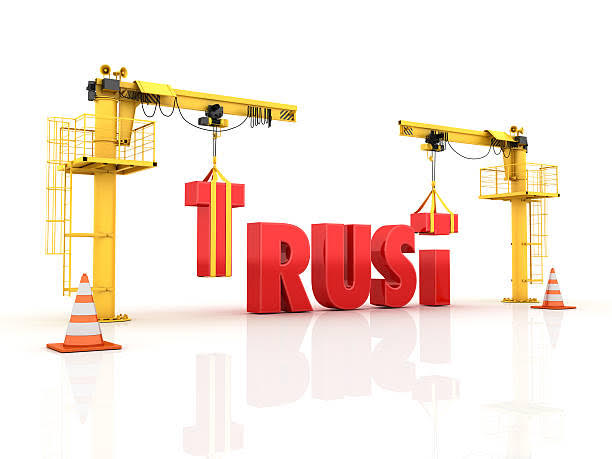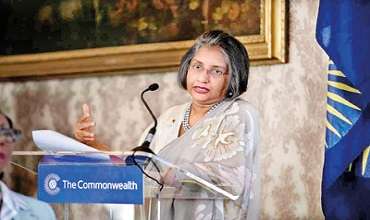Feature -Mark of a Leader: Maintaining Trust

By Timothy A.Edward
It is easy to stand out from the top because it is not crowded at the top. But the spotlight is constantly on the top and the slightest mistake that you make will get highlighted.
For trust is the cornerstone of all business relationships. It is the confidence that stakeholders have in a company’s commitment to its values, ethical standards, and actions.
Although leaders play a pivotal role in establishing trust, they are only humans and as a result they make mistakes. When mistakes happen, trust is broken. But how the mistakes are handled makes the difference, whether trust is reinforced or whether it festers to become a big wound, where only amputation can save the day.
Trust is a fundamental aspect of human interactions, influencing relationships, organisations, and societies and business partnerships are no exception. They in fact, thrive on mutual trust.
Theoretical Foundations:
The Attachment Theory and Erikson’s Psychosocial Development Theory highlight how they shape trust in adulthood.
For example, the importance of early trust experiences based on ‘Attachment Theory’ - in Sri Lanka, businesses often emphasise the ‘family’ aspect of their teams. Then, when it comes to ‘Erikson’s Psychosocial Development’- The first stage of Erikson’s model is mirrored in the mentorship programmes in many leading Sri Lankan firms, where nurturing trust in young professionals is seen as a foundation for their growth and the company’s success.
Key Principals of Trust: There are also some key principles and strategies related to maintaining trust. They emphasise ‘Interdependence’ and ‘Diagnostic Tests’ for assessing trustworthiness; and the role of ‘Felt Security’ in fostering trust within relationships.
Strategies for Maintaining Trust: Strategies like Co-dependency, Mutual Respect, High Engagement, Open Communication, and Fairness are crucial for maintaining trust, especially in organisational settings.
For, remember, disillusioned followers will show reluctance to commit to untrustworthy leaders; they might merely comply with such leadership for a time. Because followers have to buy into their leadership, before buying into the vision of a company or country.
Handling Personal Failures
So, when trust is broken, transparent remediation is key. In this, how we handle our and others’ mistakes holds the key to maintaining trust. As the ancient wisdom says, ‘First, take the log out of your own eye; then you can see how to take the speck out of your friend's eye’.
We need to take responsibility for our personal failures, mistakes, incompetencies or for those mishaps that happened during our leadership watch. Passing the blame on to others will only discredit our honesty.
Then, we need to learn from those mistakes and ensure we do not allow those mistakes to repeat themselves. Take a leader like Mahatma Gandhi, for example. He used to go for a full day without speaking, only reflecting on his actions and contemplating ways to improve them. Wonder how many of our gifted leaders can hold their tongues for a full day to do a self-analysis session.
Sharing Learnings
Second, share with others your mistakes and how you overcome them. They will love you for that, and it will create stronger connections and togetherness with those that really matter.
Merciful in Judgement
Third, you must also be merciful when dealing with those who make mistakes. The difference is that calling an action “idiotic” is different from calling someone an idiot. Focus on the issue without getting personal with the individual who caused the problem. The goal is to coach the performer, rather than attacking their performance. Address errors in a professional, direct manner without exaggeration or unnecessary drama. Focus on solutions rather than on scapegoats.
You are not proving a point in court; you are addressing and correcting a behaviour. Make that into a great coaching moment, not an investigation. When your organisation's culture is built on investigations to correct staff behaviour, that indicates deep cracks in the culture, which will ultimately reflect on the leadership.
Leadership Integrity
Last but not least, make sure you do not use double standards. Treat all your employees / followers equally. Do not yield to pressure or show favouritism. Mentor and coach, your colleagues. Your followers will transform into great leaders who will carry your torch of vision and mission long after you have stepped down from active life. You will be surprised at how many will become great leaders.
Conclusion
Maintaining trust requires continuous effort. By understanding theoretical foundations, embracing key principles, and implementing effective strategies, individuals and organisations can cultivate trust, leading to stronger relationships and successful outcomes.
Remember, trust is fragile, nurture it wisely.
-
Still No Comments Posted.
















Leave Comments